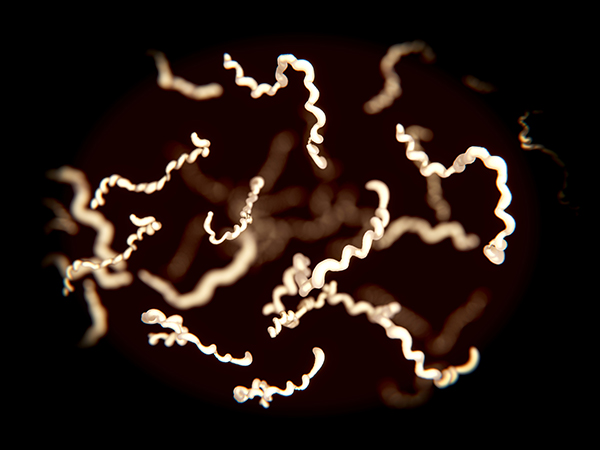Does the bacterium that causes Lyme disease also hold the key to treating Lyme arthritis?
02/06/2020 / By Darnel Fernandez

Lyme disease is one of the most common vector-borne diseases in the US. The CDC reports that around 30,000 Americans get infected by Lyme every year. However, other data gathering methods suggest that this number can rise to 300,000 cases each year. Because of the rising number of Lyme disease cases, scientists have been interested in uncovering new and more effective treatments for the disease’s long term symptoms like Lyme arthritis. Now, recent research suggests that the bacteria that causes Lyme disease – the tick-borne bacterium called Borrelia burgdorferi – might hold the key to treating Lyme arthritis.
A study published in the journal Proceedings of the National Academy of Sciences of the United States of America found that B. burgdorferi peptidoglycan, a major component of the cell wall, acts as an immunogen that contributes to inflammation during Lyme infection and in cases of post-infectious Lyme arthritis.
“This discovery will help researchers improve diagnostic tests and may lead to new treatment options for patients suffering from Lyme arthritis,” said lead author Brandon Jutras in a statement. “This is an important finding, and we think that it has major implications for many manifestations of Lyme disease, not just Lyme arthritis.”
It’s in the (cell) walls
Researchers from Virginia Tech aimed to understand why certain cases of Lyme disease are unresponsive to treatment. For some patients, symptoms persist even if there are no plausible signs of infection. To investigate the reason, the research team used samples from individuals infected with Lyme disease, which have not responded to any sort of treatment.

From their analysis, the researchers found that peptidoglycan from B. burgdorferi is a major contributor to Lyme arthritis in late-stage Lyme disease patients. While all bacteria have some kind of peptidoglycan, the one found in B. burgdorferi harbors a unique chemical structure found nowhere else. In addition, they noted that, when these bacteria multiply, they shed the peptidoglycan into the extracellular environment because they do not have the capability to recycle it back into the cell. (Related: A biocentric approach is key to curing Lyme disease naturally.)
They also observed that peptidoglycan triggers an inflammatory response in the body and that the molecule persists in the synovial fluid. This means that the body continues to respond to the presence of peptidoglycan, but fails to mount a counter-attack. This phenomenon can also explain why the usual treatments prescribed by health practitioners fail to treat the symptoms of patients with late-stage Lyme disease.
To further investigate the inflammatory activity of peptidoglycan, the researchers purified the bacteria and removed all other bacterial components. Afterward, they injected this purified sample into mice. Within 24 to 96 hours, the researchers observed that the animals’ joints exhibited inflammation, indicating that peptidoglycan does indeed cause arthritis.
The researchers hope that their findings can also be useful for applications outside of Lyme arthritis. The next phase of their study is to utilize methods that destroy peptidoglycan or intervene with it to prevent an inflammatory response, which can pave the way for treating Lyme disease symptoms.
“We are interested in understanding everything associated with how patients respond, how we can prevent that response, and how we could possibly intervene with blocking therapies or therapies that eliminate the molecule entirely,” Jutras concluded.
While designing new treatments based on these findings is still far off into the future, the study still provides further insight into the mechanisms surrounding Lyme arthritis.
Sources include:
Submit a correction >>
Tagged Under:
arthritis cures, disease treatments, Diseases, health science, infections, inflammation, lyme arthritis, Lyme disease, peptidoglycan, superbugs, tick-borne
This article may contain statements that reflect the opinion of the author





















